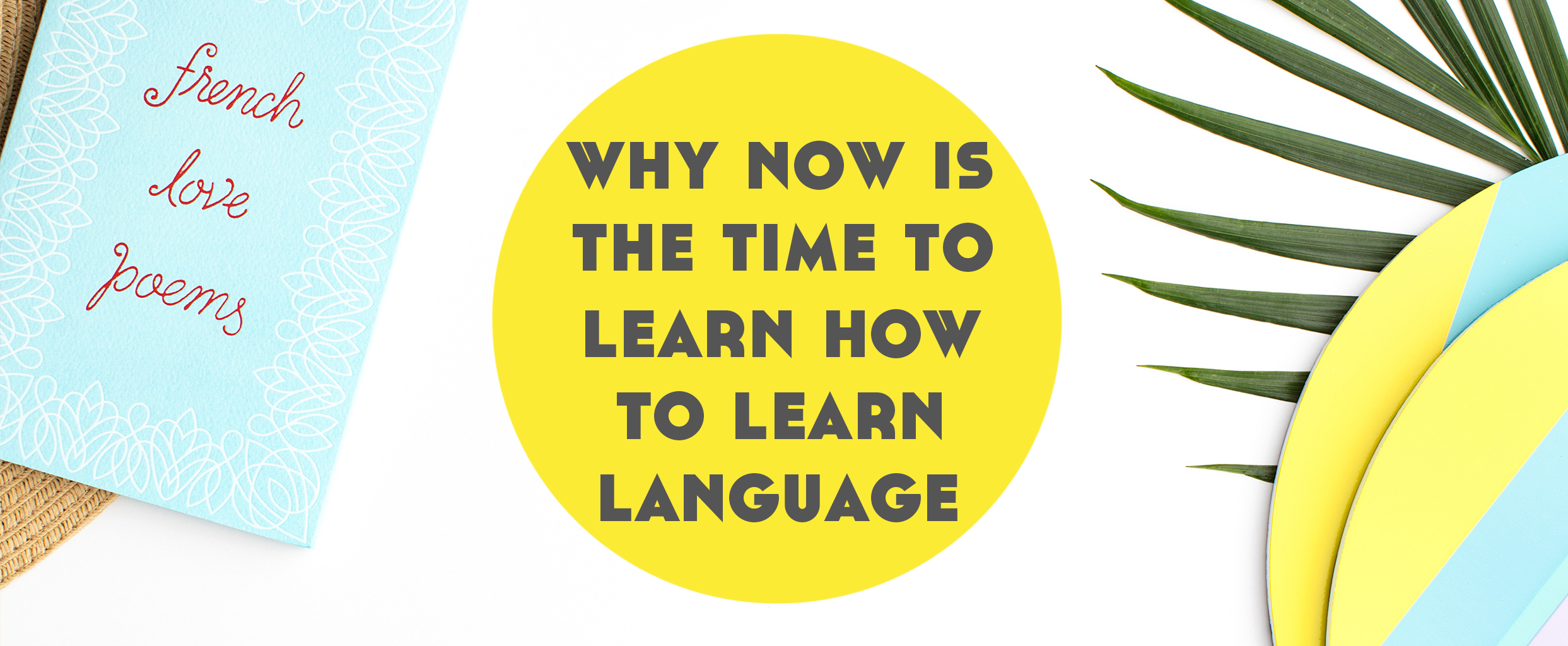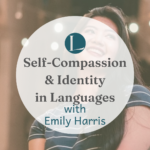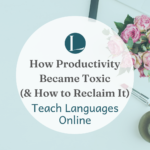February 1st, 2022
Why Now is the Time to Learn How to Learn a Language
Learning how to learn a language might not be top of your priorities. It’s a bit like sorting your bills or switching your energy supplier, you kinda know it’ll be worth it but…it’s easy to avoid. Here’s why now is the time to learn how to learn a language.
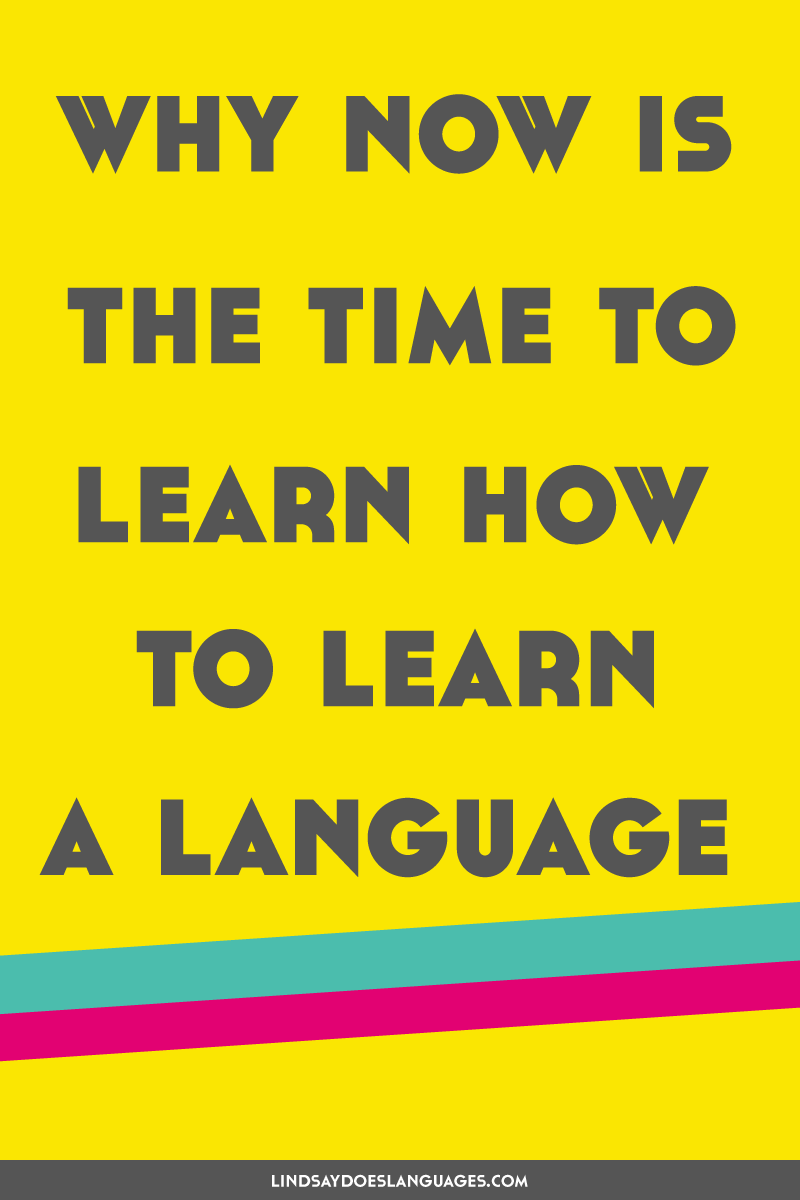
1. It helps you learn faster
We’ve all turned our head or raised a curious eyebrow at claims of “learn language X in time X”. As much as we can love slower, more intentional, and longer lasting language learning, there’s nothing wrong with wanting to learn faster too.
After all, learning faster means we can do more with the language and learn more languages!
But without learning how to learn a language, I mostly see attempts at “fast” learning failing. This is due to attempting too much in too short a timeframe, leading to burnout.
Add in some understanding on how to learn a language and you’ll be learning much faster in the long run.
Related: How Long Does It Take and How Much Does It Cost to Learn a Language?
2. It helps you learn easier
If you ever felt like you’re not learning a language quickly enough, it doesn’t mean you’re a slow and bad language learner.
It just means that what you’ve been led to believe about language learning is misleading.
It takes a lot more to learn a language than 2 minute quizzes and a daily notification.
And perhaps you’ve been bowled over and head over heels “Take my money now!” for a language “method” or “system” that promises fluency? And then…well, it didn’t quite deliver?
It’s not you that’s the problem. There’s no one-size-fits-all model when it comes to language learning. That doesn’t mean you can’t do this thing. It just means you can’t do it their way.
You deserve support that puts you front and centre of your language learning experience.
The way to make language learning easier is by understanding how to learn so you can prioritise yourself.
Related: 4 Essential Mindset Shifts for Language Learning
3. It helps you relax into your learning
That stress of wanting to do things quickly and easily can lead to frustrating and stressful language learning. And, guess what? When we don’t enjoy it, we don’t want to do more of it.
The more we know about how to learn a language for us, the better we can relax into our learning.
And the more we relax into language learning, the more satisfied we are with our outcomes. It’s a beautiful thing!
Feeling relaxed with language learning allows us the freedom to use resources we have fun with and not feel that sense of overwhelm that we’re not doing the “right” thing, or that we should be doing “something more productive”.
It’s also about knowing that what we’ve been led to believe about language learning needing to be all or nothing isn’t true.
If you’re going to learn a language, it needs to take over your life and become absolutely everything you do, right? Right?!
Wrong. Successful, joyful language learning does not have to take over your entire existence. This is an unbalanced myth.
You are allowed to keep learning how to knit. You can learn a language and continue your World Record attempt for the number of cats cuddled in one hour. This is not all or nothing.
And breathe.
Related: 50 Feel Good Language Fixes
4. It gives you transferable skills
One thing I love about language learning is how everything I learn teaches me something I can apply to other areas of my life too.
Time management, habit building, goal setting, learning how to feel comfortable getting things wrong. All super useful life skills.
And when we recognise this alongside learning how to learn a language, we’re also able to see clearer how things transfer the other way too.
For example, being both good and bad; and new and experienced; at different sports has taught me so much that I’m always applying to my languages.
And years of getting comfortable with making mistakes in languages has gone the other way too. When I’m learning a new sport, I know to try. I know to let those mistakes happen. And I know not to hold them too harshly close to me.
Related: How to Set Mistake Goals for Language Learning
5. It makes you a better learner
In case you hadn’t guessed it by now, the effort you put into learning how to learn a language actually makes you a better learner.
Understanding a little on research into second language acquisition (aka how we learn languages) can be really useful – as long as you also know how to apply it to your situation.
I share lots of ways we can do this here alongside a big piece of quite early research into the topic of how to become a better language learner.
It’s not helpful to only know the research – it’s the knowing how to apply it that will really be your key for change.
So when you’re learning how to learn a language, consider this at every stage along the way.
Ask yourself: what does this look like in reality for me?
Related: How to Become a Better Language Learner
6. If not now, then when?
As we discussed at the start, putting off learning how to learn a language is like sorting your bills or switching your energy supplier. If not now, then when?
There’s never going to be a “right time”. You don’t have to wait until you’ve reached a certain level before you start to incorporate this into your learning.
The best thing you can do is start now. That way, you can incorporate it into your learning right away.
Learning how to learn a language doesn’t have to mean you stop actually learning the language too! Combining both language learning and ‘how to’ at the same time gives you a really practical way to improve what you do as you do it.
Think about learning to cook.
Imagine if we put the pans down and sat down with YouTube videos and a textbook about how to cook.
With that alone, we probably wouldn’t get far when it comes to actually making a delicious meal.
Equally, if we just “do” the thing, and start chopping veg and throwing them in a pan hoping for the best, we’re missing out on what could be a much tastier meal.
You can’t add umami if you don’t know what foods are going to give your dish umami!
It would be unimaginable to try to learn that without cooking at the same time. Just like we can learn how to learn a language whilst also learning the language.
Apply what you learn now. Don’t wait for the “perfect time”. You’re so ready.
Learn a language with me in Language Life
So what is Language Life? How the heck is it different from everything you’ve already tried to learn a language?
I’m gonna take a guess you’ve tried at least one of the following: apps, classes, books. Yeah?
All great options, but I’ve noticed over the years that all can have their shortcomings. The things that leave us feeling…flat when it ends. Unsatisfied.
Here’s how Language Life is different to what you’ve already tried:
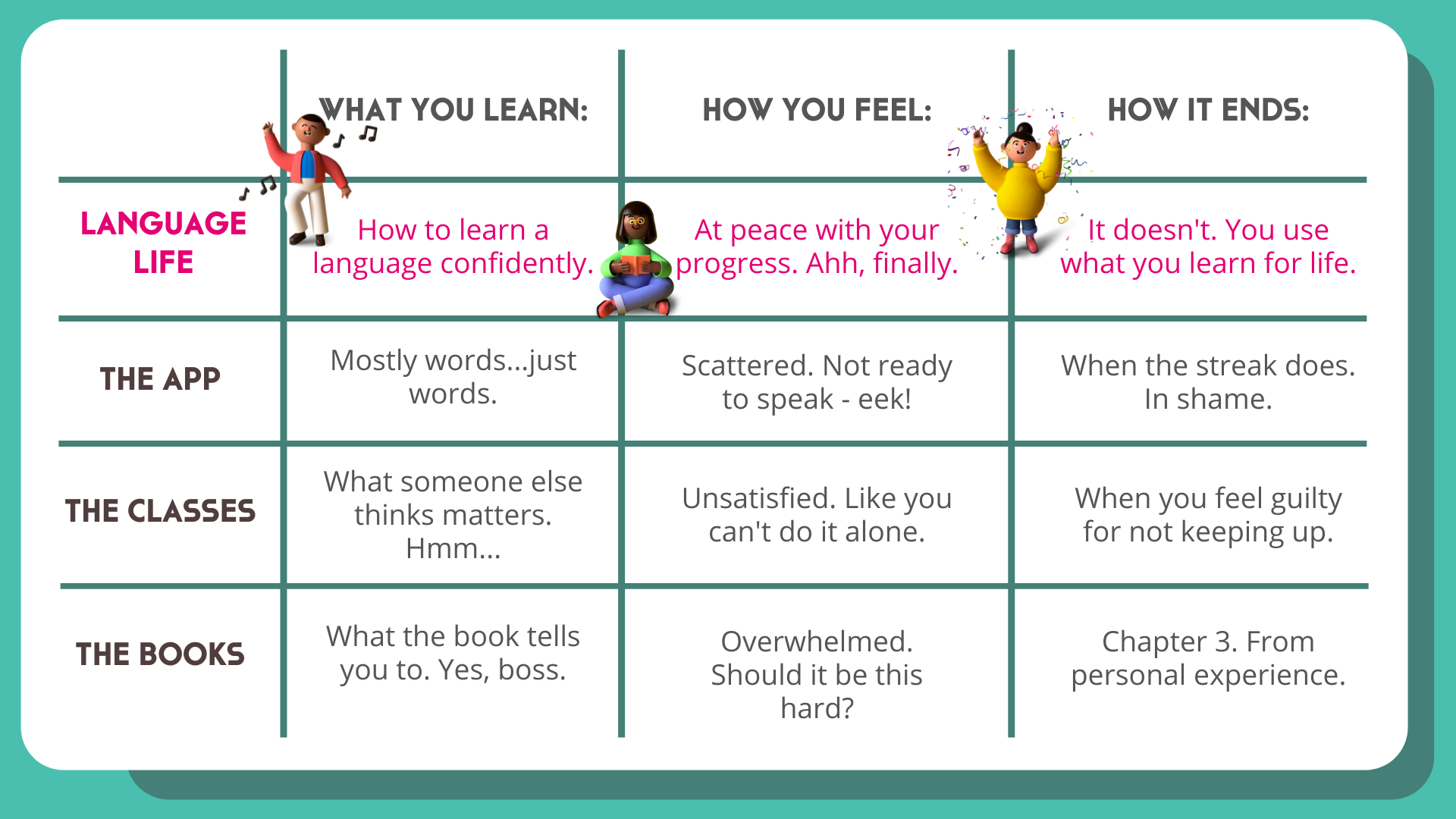
What about if I just booked more lessons?
Or bought more books?
Or had more app time?
I know the temptation of thinking that MORE is the answer.
Yet again, this is an expectation we’ve had creep up on us without us noticing: that we’re not doing enough.
You are enough.
Let’s think about lessons. It’s not always a case of those alone making you feel confident speaking. And in my experience it’s not simply a case of “more” lessons to solve it.
It’s rarely a case of ‘more’. It always starts with ‘adjust’.
Consider the time and money you can save on lessons, books, apps once you know exactly what you want from them, exactly how you’re going to approach it, and how you’ll make the most of them.
You’re ready to learn languages better. Let’s do it together.

